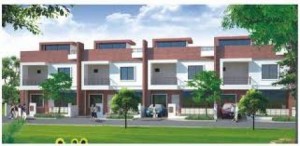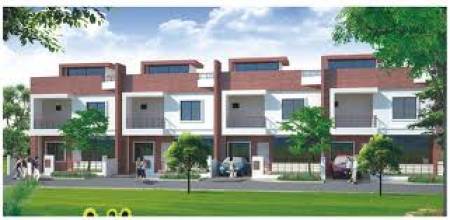 Track2Realty Exclusive: It has often been argued that Indian realty needs to adopt best practices and improve brand image as the sector defends its rough ride on the learning curves. If adopting Corporate Social Responsibility (CSR), retaining employees, inculcating brand loyalty and earning buyers’ trust are some of the best practices that can address the perception issues of Indian real estate, then the sector has to walk a long road ahead.
Track2Realty Exclusive: It has often been argued that Indian realty needs to adopt best practices and improve brand image as the sector defends its rough ride on the learning curves. If adopting Corporate Social Responsibility (CSR), retaining employees, inculcating brand loyalty and earning buyers’ trust are some of the best practices that can address the perception issues of Indian real estate, then the sector has to walk a long road ahead.
Historically with a legacy of poor perception and projection the sector though has been going through the learning curves and some of the companies have initiated the best practices in their own way, like using the buyers as the brand ambassadors or rewarding the buyers who register properties in the name of the wife, as an industry practice.
The trend has mostly been adopted and applied in the major metro cities where the consumer awareness is pretty high and the developers are professionals. However, in Gujarat which has traditionally been known as the market for home grown developers where the business is mostly family run, the concept of best practices is increasingly gaining ground. It may be in the evolution stage but at least there have been some efforts to be seen as more professional.
The Gujarat real estate is also trying to send across the message that it is in no way behind the benchmark best practices. The entry of large developers from other markets like Mumbai seems to be raising the bar of professionalism within the sector.
Deepak Prajapati, Deputy General Manager of Care Ratings maintains that the real estate sector across the country has evolved over the years and Gujarat real estate market is no exception to this process of evolution. Over the past 10 years Gujarat has been the fastest growing state with an average real growth rate of 10.42% and has witnessed the highest industrial growth rate of 12.65%. Also, Gujarat witnessed higher urbanisation rate of around 36% and has a higher urban population having more than 42.58% people residing in urban areas as per 2011 census.
The standard of living and consumer awareness amongst the people of Gujarat is high. This has lead to the need of adoption of best practices by the real estate developers as the realty market is highly competitive. Also, with substantial growth in the real estate sector in Gujarat over the past few years and cities like Ahmedabad being declared as mega city, reputed developers from across the country have entered the Gujarat real estate market. This has further lead to adoption of best practices by real estate developers to compete with the high standards of the reputed real estate developers,” says Prajapati.
Sachin Nigam, President, CRISIL Real Estate Ratings also agrees to the fact that the real estate market in India has seen major changes for the good over the past decade in many critical aspects. He cites some of the positive changes sweeping across the sector as incorporation of technology, heightened professionalism, corporatisation, greater focus on quality, and becoming customer-centric. The major cities of Gujarat have not bucked this trend and adopted these best practices.
“The state has used technology as a differentiating factor to bring in efficiency by taking the lead in e-governance and computerisation of land records. This has led to an increased availability of information for acquisition and registration. One of the areas which require impetus is greater transparency in customer communication for all aspect of a project. Developers should be more articulate on the details of project approvals, ensure fair and transparent customer agreements, display more information related to consultants, approval details, and construction status on their websites,” says Nigam.
Manan Choksi, Regional Director, RE/MAX MGM is of the opinion that the early adopters of best practices are the ones who earn more in a growing market, and hence there is a fast adoption of such improvements by the key developers across the state. According to him, in cities of Gujarat the market is seeing the development and not just the growth.
“Fast delivery of projects, clarity in total cost of the investment and no problem with municipal permission are things worth emulating for an overall eco system of best practices in the state. Sell on carpet area, commission to the broker on booking, return on investment, easy liquidity of investment are required in Gujarat. But yes, it may be slow but the wave of change is definitely there,” says Manan.
Analysts believe that best practices like use of overhead cranes for fast development, adoption of advanced fire safety measures, adoption of best labour safety standards, development of earthquake resistant structures, use of fly ash bricks and concrete blocks for construction, development of rain water harvesting system which ensures good water table level etc are being adopted by real estate developers across Gujarat. Also, many developers are adopting to the concept of green buildings wherein designing is done in such a way that it leads to better air ventilation, better space usage, waste recycling and better usage of natural lights.
Legal documentation is now done for full/higher value of the property which is leading to more transparency regarding the true value of a real estate property. Although there is substantial evolution in the real estate market in Gujarat there are still many areas wherein there is scope for improvement. Investors play a big role in the Gujarat real estate market which drive the prices and create artificial demand. Thus, regulations like compulsory registration of property deals on 20% payment as in cities like Mumbai should be adopted.
Since these are early stages of evolution, for many developers there is lack of clarity on various issues. For instance, with regards to the tenure of the accountability of the developer for maintenance of the property there is no industry accepted benchmark. Due to the lack of understanding some additional charges like car parking charges are still being collected by many developers under different names. The mandatory provisions like the property delivery date being explicitly mentioned in the Sale Agreement which needs to be incorporated to ensure accountability of the developer is also an area where the bigger developers are nowadays being more careful for their brand reputation.
However, with some of the new developers operating only in the select local market Sale Agreements constitute only one-sided clauses for penalty on the buyer for delay in payment. However, there is no penalty clause being observed for the developer for delay in delivery of the property. The real estate developers in Gujarat must adopt to these best practices for a collective image makeover; something that will lead to more investors’ confidence towards the sector.
What can be vouchsafed at this point of time is the fact that the adoption of best practices by real estate developers in Gujarat has been in line with the pace of adoption across the nation. In fact, with the higher growth that Gujarat has witnessed over the last decade and major upcoming infrastructure projects in the State, the adoption of best practices by developers in many cases has spread faster in Gujarat compared to many other states.
Majority of developers in Gujarat have understood the fact that if they want to lure the potential service sector companies and the growing cosmopolitan customers they need to offer the best. This, however, is only the beginning and on the learning curves of best practices the sector has a long way to go before Gujarat emerges as a ‘model case’ of being a market with best practices followed in letter and spirit.





